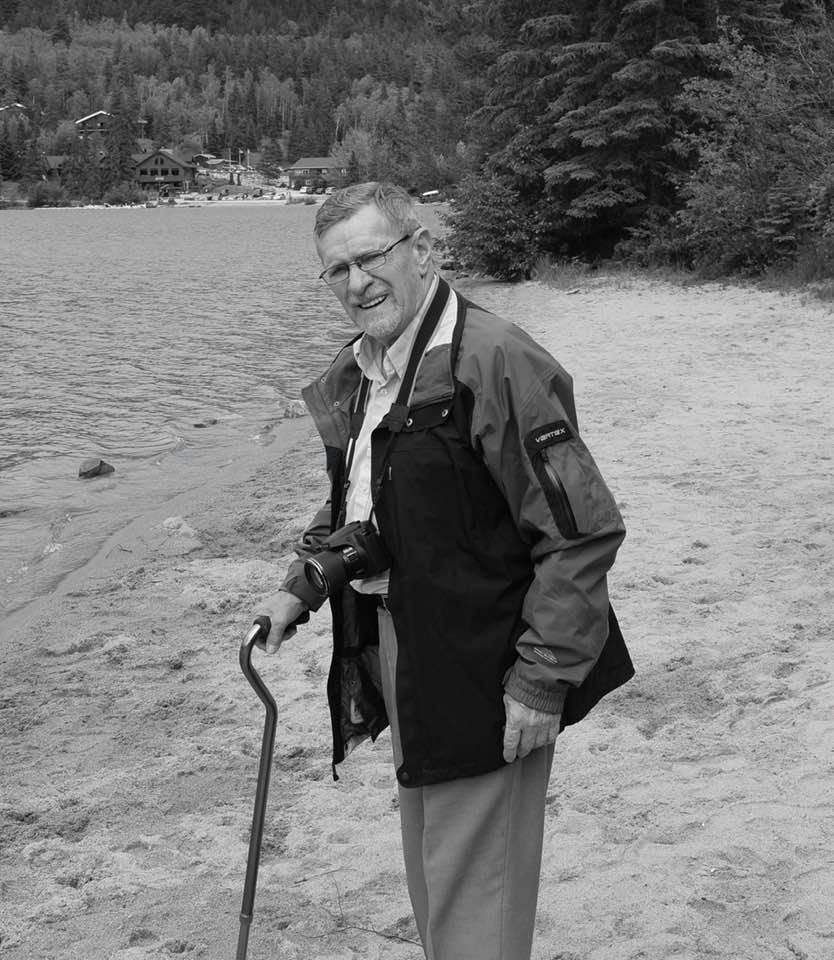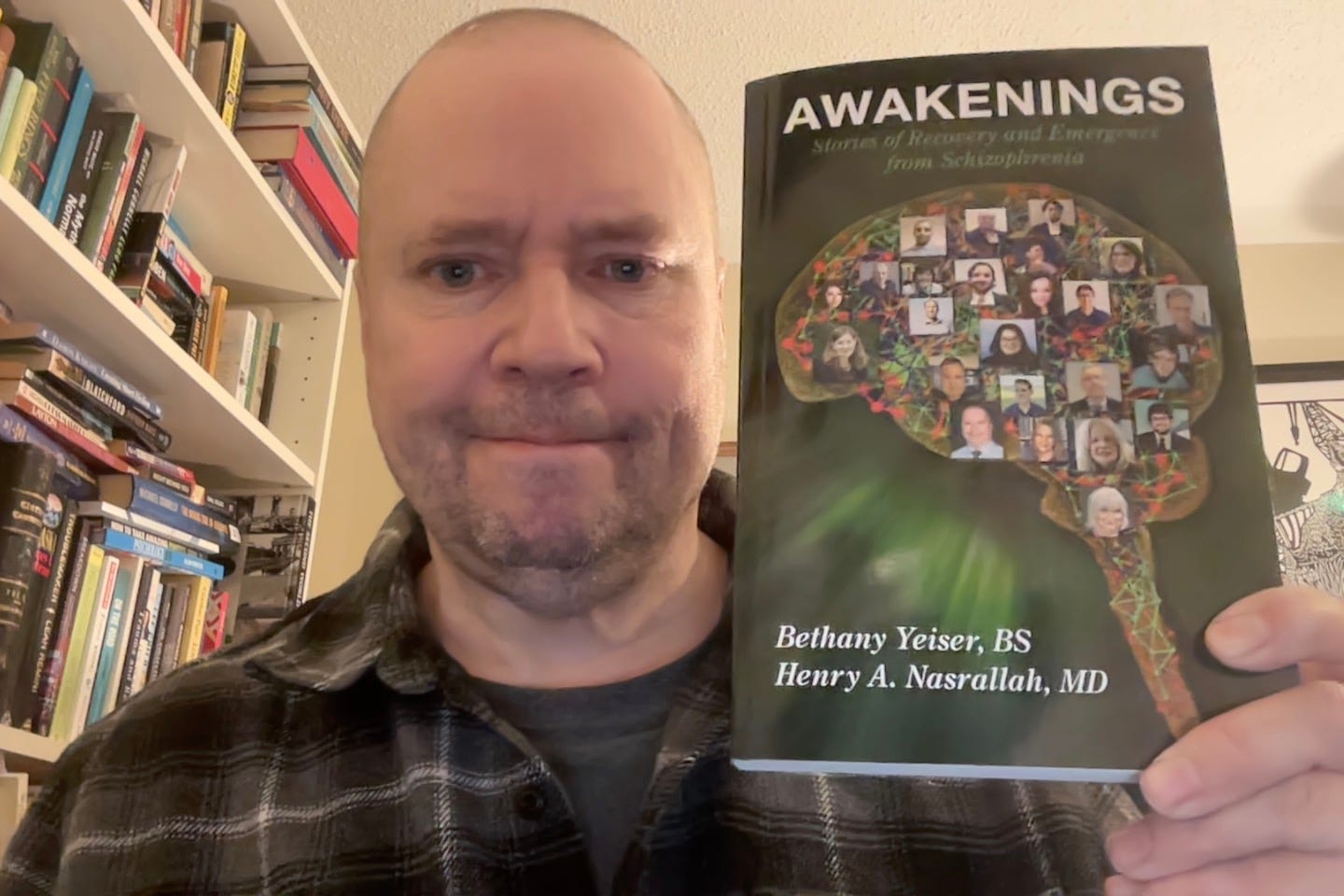Who Is The Most Important Person In Your Loved One's Recovery From Mental Illness? The Answer Might Surprise You
Looking at What Worked For Me and For Others

When someone experiences a mental illness, it seems that in order to recover, they have to give over a lot of power to others before they are truly on the path to getting better. This may sound like bad news, and sadly in some cases it is, but I would like to explain how your loved one’s situation may not be as bad as you think.
Many people, certainly myself, and certainly a large percentage of people who have illnesses like mine that are on the spectrum of schizophrenia disorders, have a very hard time accepting that they need help at all, even the help of essential medications. This of course is the situation known as anosognosia, where a person lacks insight into their illness. There is a key person who is the best hope for the mentally ill person to get through this roadblock to recovery.
I have vivid, often disturbing memories of my early. days of psychosis. I was so disturbed I didn’t know right from wrong, my whole psyche had been turned upside down but I didn’t realize it. I did have a genetic predisposition to psychosis/schizophrenia, but I have often wondered if I hadn’t been under so many stressors if the illness wouldn’t have developed, or would have developed in a less severe fashion.
My life situation when I first became ill was precarious to say the least. One of the stressors I had was that I deeply cared for a friend I had in school. We sat next to each other in class for 5 months and she was one of the most beautiful and caring people I had known. I don’t want to say I was in love with her because the relationship never really progressed that far. Early on in our friendship though, she gave me her phone number and every day I would go home from school and sit alone by the phone cursing my cowardice of not being able to call her. I delayed any display of my feelings long enough that she cultivated a romantic relationship with someone else.
I was also under stress at work, being a young person on a crew of adults, yet having enough seniority to be given a better job for more pay within my department. I was never advanced to the better position and some people I only considered to be jerks were promoted over me. The stress of work was worsened by the fact that I was attending school during the day and sleeping very little. In addition to all this, I was having a hard time coping with the suicide of a close friend.
I have probably spent too much time explaining something I have described before, but basically, I started to lose touch with reality rapidly. I had bizarre behaviour, bizarre ideas, and actions that were far apart from what I normally did. I wasn’t the type of person to fight anyone, but I was so far gone I beat up the person who was going out with the girl I liked. My world was so taken over by delusion and hallucinations that I never saw the harm in all this.
What is important to note here is that news of my mental collapse and incarceration in a psychiatric hospital spread like wildfire. I wanted to somehow prove I wasn’t mentally ill and lied and denied my condition after my release from the hospital. Everything I once had was shattered, from my many friendships to job situation, ability to keep my car on on and on. I had some inclination that there had been something wrong, but I also blamed the medication for all the things I lost. I am so surprised I never ended up alone and homeless, addicted to drugs and at death’s door. There was one person who was key in my recovery, key in getting me through the worst times of my entire life.
Not my psychiatrist
Not my therapist
Not the nurse who showed me kindness and empathy.
Not my friends who tried but failed to help me
My now-departed father was the most critical person in my recovery
My dad had been main caregiver to my mom, who suffered for many years with depression and psychosis. He loved my mom dearly and never gave up helping her. My dad was proof to me that I could have a serious mental illness but could still be loved and still be cared about. He wasn’t perfect, but he did so many things to get me through my illness and to the point where I accepted my diagnosis and willingly took my medication. Your loved one, if you are reading this to help them, needs you.
One thing I will never forget was how, especially when I was at my worst, despite that my dad was on a pension and had very limited means, he would visit me every single day at the hospital, even before we were able to occupy the same room without arguing. Later, after my release from hospital, he took me to information and support groups and even would come to see me and take me out for a coffee or later daily walks. He supported me well into his retirement years and became my best friend and the most important key to my recovery.
I feel that if you are reading this, you have someone in your life who is struggling with a mental health disorder. I want you to take a deep breath and think about the fact that with you in their lives, you are now giving your loved one a far better chance at recovery than any medication, or salaried support person could ever give, although I don’t want to diminish the importance of these people and what medications can do. What I want to show in this short post is that the doctors, nurses, therapists, and medications can work a miracle—but they won’t do a thing if your loved one is unable to access them or feels like they should resist the treatment that is often the only thing that will help them.
For those who are reading for information or are possibly staff members of a treatment team, or even have a mental illness themselves, I hope I can get across what I strongly feel to be true. If someone comes from a loving and caring family, they have so much better outcomes in recovering from a serious mental illness than someone who never had that privilege. I implore mental health workers to always encourage and support the inclusion of family in a patient’s life, aside from in extreme cases where harm can be proven.
This is critical to understand because sometimes a friend, a person in a relationship with someone with mental illness, or even someone who works in the field may at one point realize that they have unofficially taken on the role of family member and caregiver and that this is such a position of trust and honour and responsibility that you must take it seriously, even if by simply passing the torch to a volunteer agency that will do such things as put together support groups or put the person on a phone list for peer support as The Schizophrenia Society of Alberta does.
Here I would like to thank some of the people who went above and beyond the call of their positions to contribute to my recovery:
-the nurse I couldn’t name from Ward 10-1A at Alberta Hospital who casually expressed an attraction for me which helped me feel worthwhile, but more importantly, she went out on a limb to share her own experiences growing up in an alcoholic family and told me how I could get help for my past difficulties in this situation.
-Tanya, my former supervisor who was visibly upset when one of the members of the group she supports passed, and because she visited me in the hospital when I relapsed due to a medication change. Tanya has also saved all of my published articles and purchased all of my books, and helped me in so many ways.
-Dr. Petkowski and Dr. Lee who worked at Alberta Hospital when I was there for 6 months in 1991 and showed such kindness and compassion. Until I saw these two doctors, I met with a great deal of opposition and judgement from staff members who seemed to see me as a misbehaving child needing years, not months of treatment.
-My sister Michelle, who wrote a foreword for my book “Alert and Oriented x3” and has been so kind and supportive to me all my life.
-My mother, Beverly, who passed away a number of years back but endured so much difficulty and pain not only from her own illnesses, but from having a son with a mental illness, yet would still do anything to give me any kind of happiness possible.
The list is really too long, but I just wanted to give readers an inkling of how important it can be to treat mentally ill people as people first and people with an illness second. For the caregivers out there, I hope you can find resources to keep supporting, keep learning. There are many organizations that can help. For example, in Canada there are a number of Schizophrenia Society organizations in most major cities and provinces, and a Schizophrenia Society of Canada. For American friends, there is the National Alliance on Mental Illness which is a great place to start looking for mental health resources. Back in Canada, there is CAMH (Centre for Addiction and Mental Health) in Ontario. I don’t want to miss one of the best organizations I know of for helping support people who suffer from schizophrenia and their families, www.curesz.org which is located in Ohio. I volunteer for CureSZ and they have an incredible bi-weekly support group for caregivers, and the many members work together to support each other in overcoming schizophrenia and getting family members the help they need. The founder of CureSZ has written a book about her own incredible journey to recovery, her mother wrote another book following the same timeline that I feel is required reading for caregivers, and more recently, Bethany has published a book called “Awakenings” which tells many stories and has a lot of information about schizophrenia and support.
I almost wish I could keep on going on. There are so many people who have helped me and so many resources given by the health care system and charities outside the system that have been critical in my recovery. But without my now-departed father, who was intelligent enough to understand that he needed to teach me most of all how to stand on my own two feet, none of that help would have mattered.





